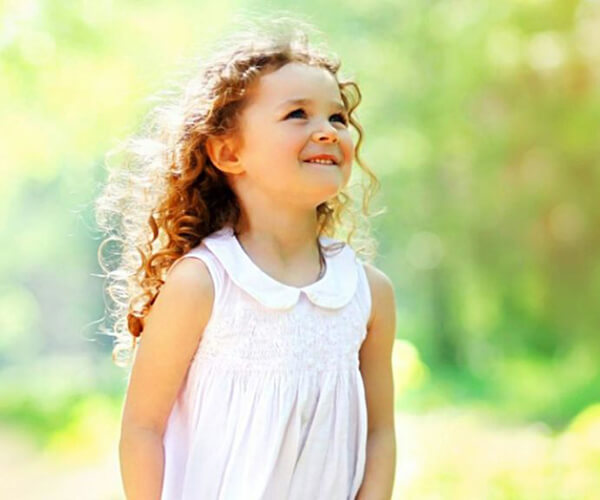
In 2015 the second Australian Child and Adolescent Survey of Mental Health and Wellbeing Report revealed that one in seven Australian children between the ages of 4 and 17 experienced a mental illness.
One in seven.
Aged 4 to 17 years old.
Diagnosed with a mental illness.
In Australia.
Shocking.
Out of every seven, one beautiful child, who is a precious and much loved member of a family just like yours and mine, is diagnosed with a mental illness. Some can’t be long out of nappies.
That means on average, one player on every netball team, two in every Aussie Rules team and 3-4 kids in every Australian classroom have suffered so long with symptoms of mental illness that their worried parents have sought help from a professional and their child has ultimately been diagnosed with a disorder such as ADHD, anxiety or depression.
If one of the one in seven is your precious one, they’re lucky to have a parent like you who’s proactive in learning how to help. I know that because you’re reading this.
If you’re a parent of the six in seven who don’t have a diagnosed mental illness, your kids are lucky too. Because you’re learning what you can to buffer them against mental illness and help them flourish.
No longer should we wait for symptoms of mental illness to show, it’s time to bolster our kids’ mental health in ways that are shown to buffer their mental health.
At a recent conference I spoke to parents about the building blocks for raising happier kids with flourishing mental health. What always happens after a presentation, and what I consider a real privilege, is that parents patiently wait to talk to me, not about how their kids are flourishing, but about how they’re suffering. It’s heartbreaking. Because I’ve been there.
I’m one of the one in seven.
I was the one on the netball team.
I was the one in the classroom.
I was a kid who suffered terribly with anxiety. But things were different for me.
Because no one knew.
Not my parents.
Not my teachers.
Not me.
Thankfully, things are different now. We all know so much more. And there’s so much we can do.
There are tangible, practical activities we can engage in with our kids, ways of thinking we can role model and encourage and practices we can do as families which the science shows help shield our kids against mental illness and boosts their mental health if they’re suffering.
Activities
Random acts of kindness
“Those who bring sunshine into the lives of others cannot keep it from themselves.”
James M. Barrie
Kids are born to be kind. It’s almost unlearned by many as they grow older. When kindness is role modelled by parents, and kindness in kids is nurtured, it can impact positively on their mental health and wellbeing over their lifetime.
This may not be new to you. I get it. We hear a lot about kindness. So why is it so powerful?
Kindness causes happiness. Part of the reason is because of the positive emotions acts of kindness elicit in kids (and adults too!). When kids are kind they feel good. It makes them feel any one or a combination of positive emotions including happiness, joy, pride, contentment. It’s also powerful because it takes kids’ focus off themselves and puts it onto others, reducing any stress they might be experiencing.
Kids who are kinder also have more friends and it’s unquestionable that lots of time with friends and family gives kids a huge happiness boost. Research also shows that people who are kinder live longer, have better physical health, are more hopeful, have higher self-esteem, and experience less anxiety and depression.
Here’s the clincher. We have to teach our kids to be kind. Though it’s innate from birth, we need to foster continued kindness in our kids if we want to embed it into their thinking and lifestyle.
Here’s a few ideas:
Share a smile with another child they don’t know
Ask their teacher how they enjoyed their weekend.
Hold a door open for someone
Make a card for someone who could do with cheering up
Help them find a way to volunteer some of their time
Encourage small acts of kindness
Talk to your kids about the thoughtfulness and kindness that comes their way
Thinking Skills
It’s been said that we have around 60,000 to 70,000 thoughts a day. And that most of them are negative. Positive Psychologists often say that our minds are like Velcro for bad thoughts and Teflon for good.
We see this in ourselves. We can have a brilliant day where one thing went wrong. And what is it we spend the most time thinking about? Problem solving, if only-ing and contemplating?
You guessed it.
So how can we teach our kids to think differently?
We can start by teaching our kids that thoughts are not facts.
It’s so liberating.
Helping them to understand that just because they think it doesn’t make it true is life-changing.
We can also help them to look at their thoughts more than they look through them.
Next time they’re having a hard time mulling over something that’s troubling them try this.
Ask your child to either sing the thought to the tune of a nursery rhyme, say it in a silly voice or if they’re older place “I notice I’m having the thought that…..” in front of whatever it is they’re thinking. If they do this a few times, it distances them from the thought.
They start to see the thought for what it is. Just a thought. A bunch of words. Words that aren’t always true and often, despite being true, just aren’t helpful.
It’s a powerful practice.
Family
When I was a kid we used to go out as a family every Friday night to the local Bistro and I’d order the same thing. Ham steak and pineapple. Blah. I can hardly bring myself to think about it now but for some unknown reason, at the time, I just loved it.
Though I don’t fondly think about the meal, I loved those Friday nights. I loved thinking about them during the week, I loved spending the time with my family, and I loved reflecting on them afterwards at home.
That was our family tradition. It was something only our family did together.
Traditions are powerful ways to bolster the wellbeing of kids and to bring them closer to us, now, and in years to come as they grow up and even after they’ve flown the coup.
Family traditions give kids a sense of security and closeness to the family, they’re comforting and make the world safer and more predictable for them. They also give kids a sense of identity and an opportunity to understand and adopt family values.
In our house? We have Friday movie night. It’s awesome. We all take it in turns to choose the movie. I recently chose Wonder which everyone groaned about at first as they’re used to a comedy but it was my choice and I stood my ground. In the end, the kids loved it. Parts were uncomfortable to watch as they evoked feelings of sadness, but they learned a lot and it inspired great conversations for days afterwards.
Your tradition could be big or small, weekly, monthly or yearly, or a combination of all of these. As long as it’s enjoyable, predictable, reliable, and it’s yours.
Here’s a few ideas to get you started:
A family handshake
Sunday morning pancakes
Family games night
Sunday football
Birthday cake cut wish
Easter egg hunt
Thankful Thursdays
New Year’s Eve party
You don’t have to do all of it at once. Just pick one thing and weave it into the fabric of family life. It may take a little effort at first but because all of these things feel good, it doesn’t take long for them to take on a life of their own.
In summary:
To bolster and buffer kids’ mental health try these to get you started:
Random acts of kindness – big or small
Teach your kids that thoughts are not facts
Start a family tradition like a family movie night
It takes a village to raise kids. Join me and hundreds of other parents working together to raise kids who flourish. You can do that here.


about
Jodi is on a mission to elevate mental health and wellbeing in families, classrooms and workplaces.


free 5-day
Calm your anxious brain
mini course

Recent Posts

free 5-day
Calm your anxious brain
mini course
Sign up for my free 5-day ‘Calm Your Anxious Brain’ email mini-course. Put the strategies into place for yourself, light the way for your kids, or do both.






